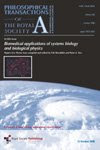
Without further a do, here is the overview figure taken from The NY Times:
From the academic study impressive correlations whereby coefficients around 0.7 -0.8 compared to certitude, the perfect correlation value of 1.0 (100%) are given for various poll surveys.
Stevenson and Wolfers academic work is an econometric study based on poll data and statistic treatment.


This re-opens this long debated issue and offers a window to several freely available peer reviewed academic papers and general press articles from major news papers on themes so fundamental to human existence.
When I come across work on theses themes I cannot help thinking of Dale Carnegie's old list of human desires for memory:
1. Health and the preservation of life.
2.Food.
3.Sleep.
4.Money and the things money can buy.
5. Life in the hereafter.
6 Sexual gratification
7 The Well Being of our children
and last but not least
8.A feeling of importance, a desire to be important
or again Maslows triangle
More... cf. refs....
1. David Leonhardt NY Times 16 April 2008.
NB.The NY Times article won 435 comments before it’s closure.
2. Economic Growth and Subjective Well-Being: Reassessing the Easterlin Paradox by STEVENSON WOLFERS University of Pennsylvania[Pdf]
NB. 102 page review,3pages of refs., 23 Figures…
Pub. In Brookings Papers on Economic Activity, Spring 2008
3. Easterlin Paradox via Wikipedia
NB. serveral worthwhile refs on Wikipedia.
4. Easterlin’s seminal academic paper
5. Other sources Pew study.
6. Dale Carnegie "How to win friends and influence people.
Main data sources:
7. World Values Survey
8. Gallup International
9. Gallup World Poll Research Design









No comments:
Post a Comment
Comments, questions and/or suggestions welcome. If I can be of further, more focused assistance, do not hesitate-ask. Comments are moderated to assist further enquiry and assistance.